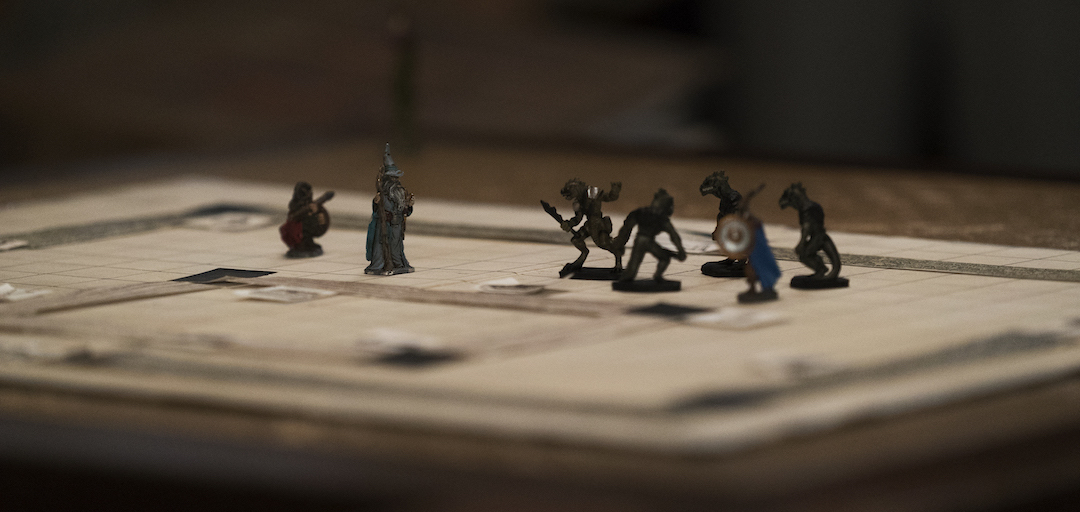
I am happy to announce that the QED Lab has been selected for the 2018 Summer Program for Undergraduate Research (SPUR), an intensive 10-week research experience at the University of Utah. This means that we will be awarded funds to recruit a student to work with over the summer, from May 23, 2018 to August 3, 2018.
The project that was selected for inclusion is titled "Automated Dungeon Mastering," and it is described below. If you are interested in learning more about the project, click here. I have also posted important details about the SPUR program, but if you want to learn more about the process, click here.
If you are interested, and have additional questions about our project, please email me.
To apply, click here.
Overview
This project targets the development of an artificial intelligence (AI) agent capable of running (in whole or in part) a tabletop role-playing game (i.e. serving as a “dungeon master”). The development of such an agent is said to be a “grand challenge” of the interactive storytelling research community.
The student will develop an AI agent that automates a lot of the necessary minutiae that happens during a session of the role-playing game Dungeons & Dragons (D&D). In D&D, the dungeon master (DM):
is the game organizer and participant in charge of creating the details and challenges of a given adventure, while maintaining a realistic continuity of events. In effect, the Dungeon Master controls all aspects of the game, except for the actions of the player characters (PCs), and describes to the players what they see and hear.
Storytelling is increasingly relied upon in technology applications to entertain, educate, and engage our society in more compelling ways. This project will explore technology that may enable the automatic production of on-demand, user-specific narrative tailored to a person’s specific background and information needs. The research will further advance society by serving as a technological foundation for novel systems leveraging narrative in contexts where we already see the use of manually/semi-manually created narratives in virtual environments, such as training and learning, entertainment, rehabilitation therapy, intelligence analysis, cognitive intervention for aging populations, automated news generation, and health care communication.
Student Role
The student will work to synthesize state-of-the-art natural language processing technologies (for example, Amazon’s Alexa software) with state-of-the-art computational narrative generation systems (for example, automated narrative planning architectures) in order to create an AI agent that can facilitate interaction with a tabletop role-playing game using a conversational interface. The student will explore a range of potential features that the AI-DM can support, and will implement a subset of them depending on personal interest. These features can include (but are not limited to):
- game state-tracking: calculating perception checks, attack rolls, movement for characters
- automatic generation of character dialogue
- performing dynamic difficulty adjustment
- procedural world and narrative generation
The student will be responsible for surveying available technologies, coming up with a project plan that details the software deliverables they wish to commit to (which must include some subset of the above features), and then proceeding with an implementation that will be iteratively refined throughout the research experience. In addition, the student will read selected academic articles that cover topics around artificial intelligence, interactive digital entertainment, and intelligent narrative technologies, and will be asked to synthesize insights from them that are relevant to their ongoing software development efforts. Day to day, the student will work on reading, writing, software development, and structured discussions with graduate research assistants and the lab director.
Eligibility
Admission to the program is competitive. Applicants must meet all of the following criteria:
- be a matriculated, degree-seeking undergraduate student in the Fall 2018 semester (beginning or continuing college career in Fall 2018 and not graduating before December 2018)
- eligible to work in the United States
- able to commit to approximately 35-40 hours per week of employment at the University of Utah during the duration of the program (May 23-August 3, 2018)
- at least 18 years old by May 1, 2018
Please note that no previous college coursework or previous research experience is required.
Important Dates
-
Student application deadline:
11:59 PM (Mountain Time) on Sunday, January 28, 2018. - Letters of recommendation deadline:
11:59 PM (Mountain Time) on Wednesday, January 31, 2018.
Note: once the applicant has submitted their application, letter writers will receive an email with a link to upload their letters.
SHARE
Categories
Paper 3
Grant 3
Outreach 3
Recent Posts
-
New Paper: SCOPE: Selective Cross-validataion Over Parameters for Elo
Posted on 09/20/2019 -
New Paper: Creativity Support for Novice and Sensory Impaired Users in DAWs
Posted on 05/15/2019 -
Michael Clemens awarded NSF GRFP
Posted on 05/09/2019 -
QED Lab Awarded Activision Grant
Posted on 04/19/2019
Popular Tags
science game design computer science interactive narrative narrative sensemaking university of utah computational psychology computational modeling laboratory presentation experiment research experience for undergraduates REU cognitive science user interface human-centered computing research artificial intelligence adventure games javascript design engineering research assistant education virtual reality cybersecurity narrative elo machine learning player modeling skill modeling creativity DAWs broadening participation in computing anticipatory thinking panel music keynote